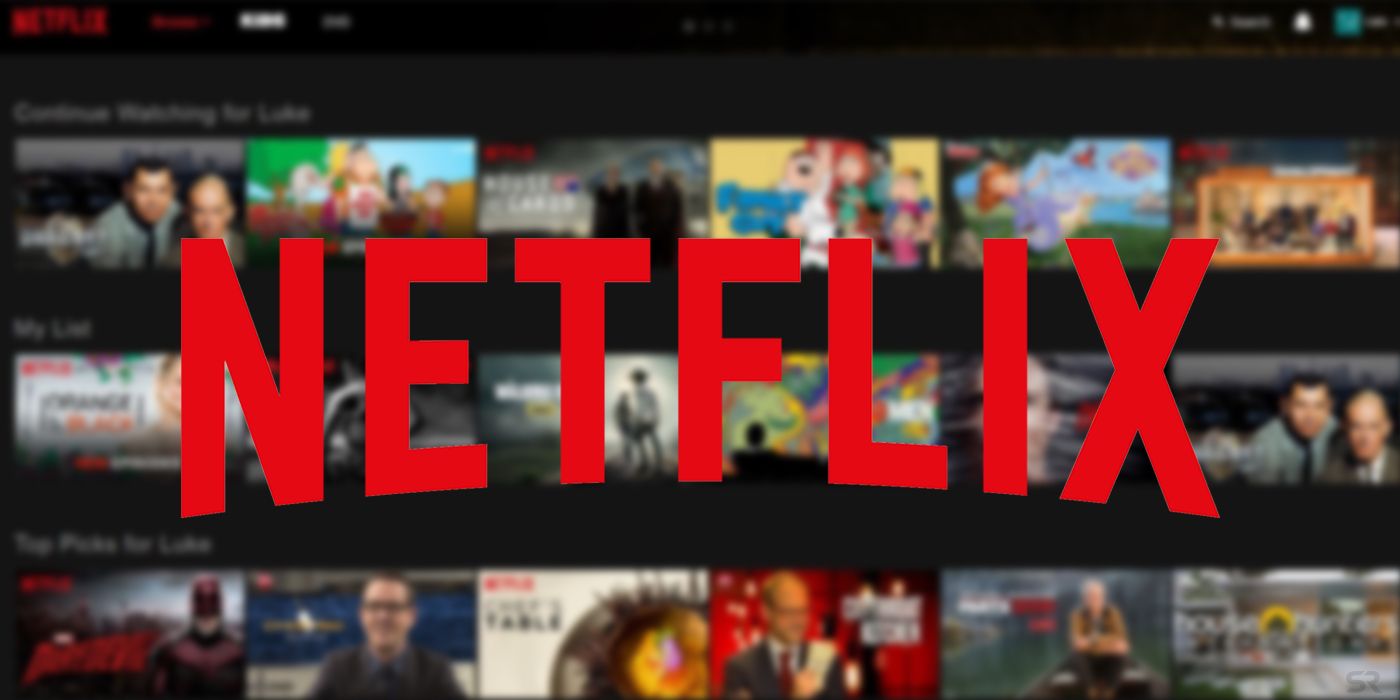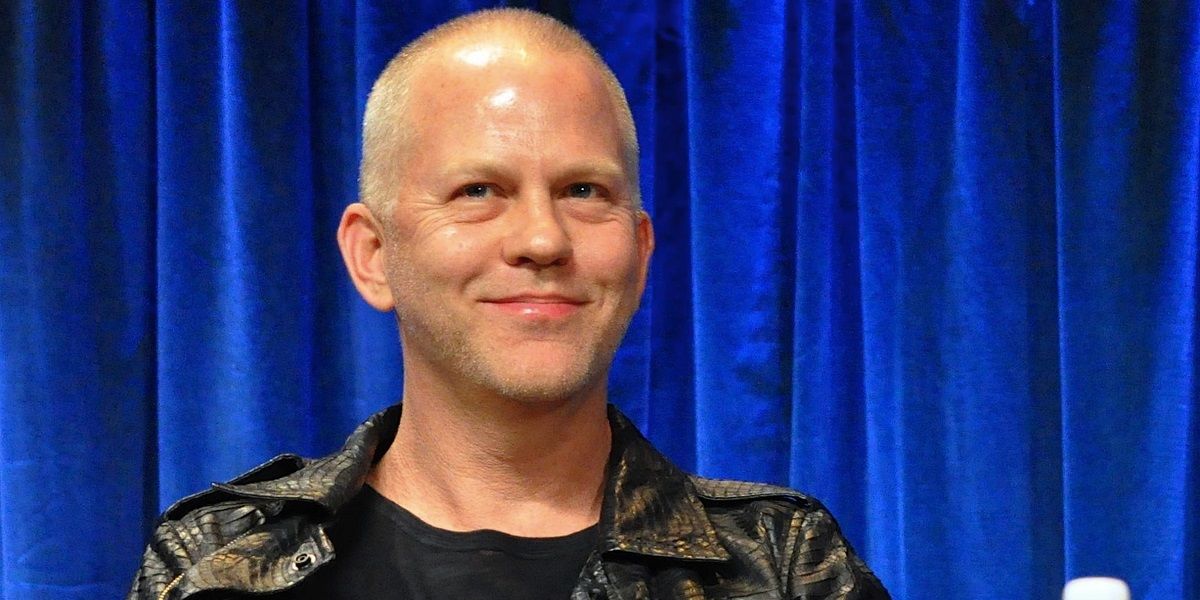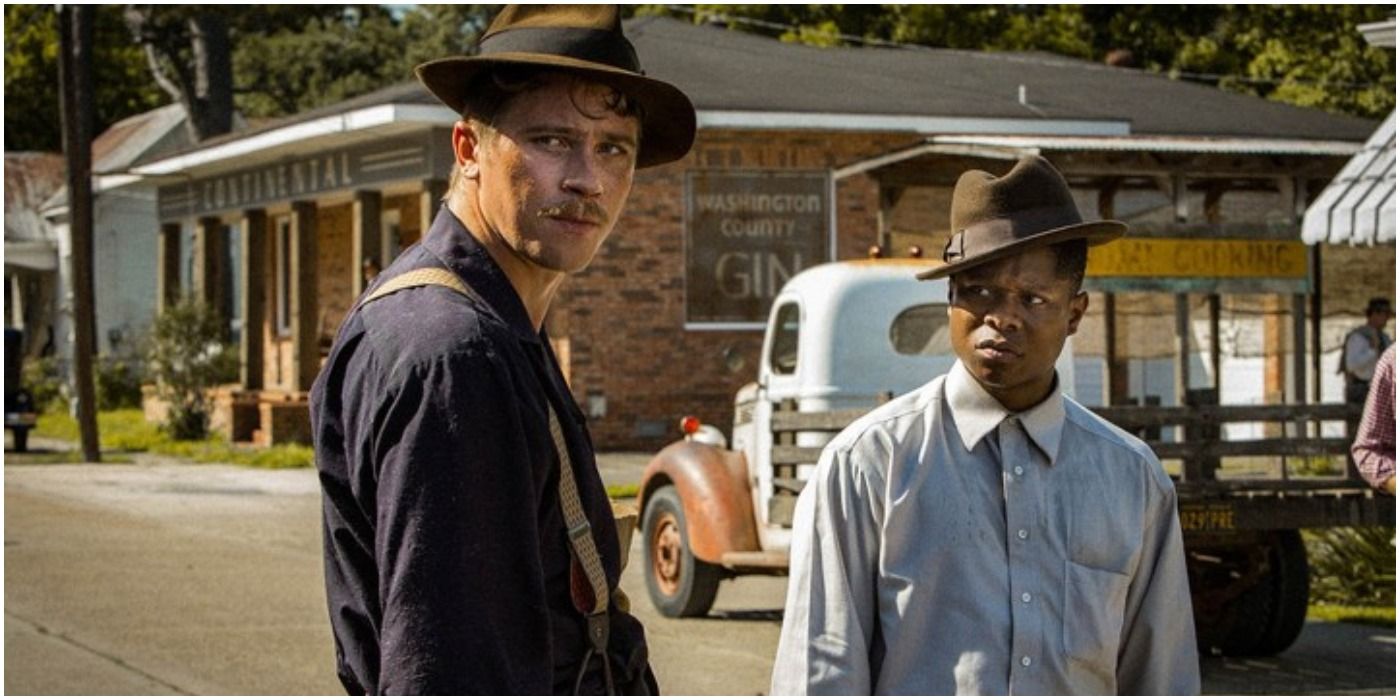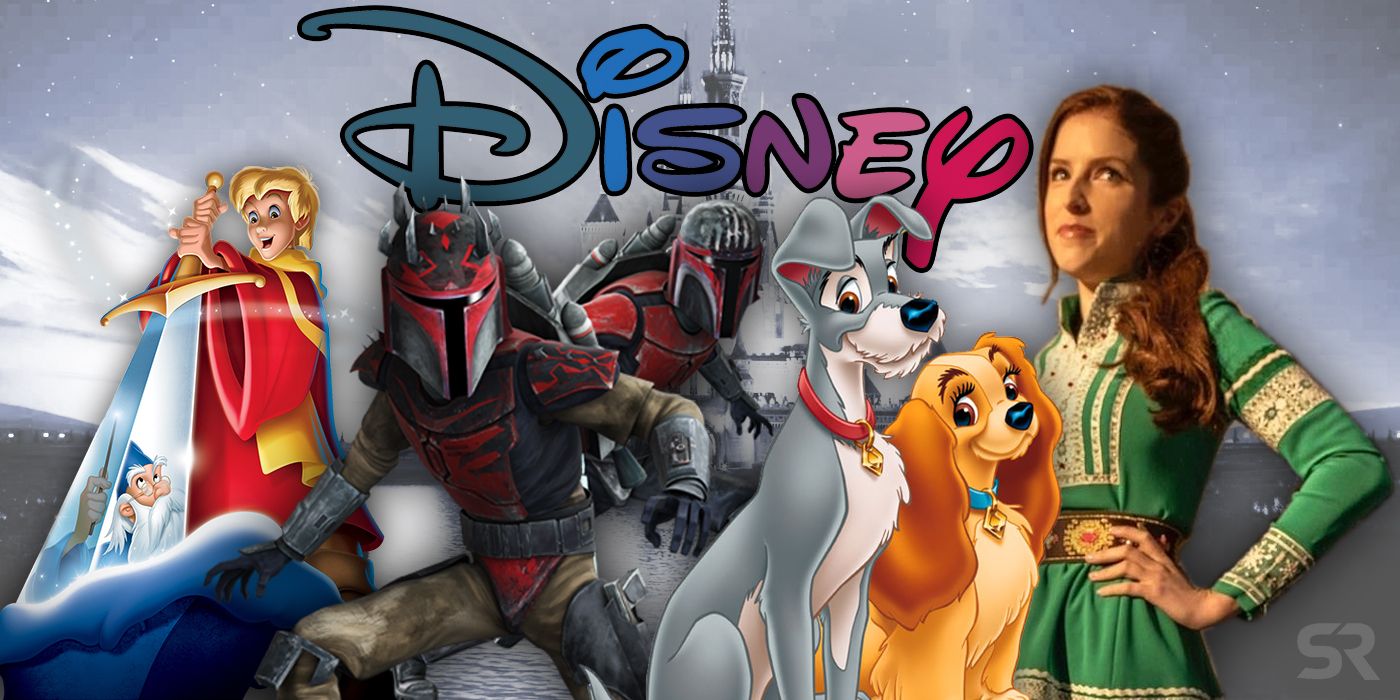
As the undisputed kings of streaming expand their roster of original content, we look at what’s next for Netflix.
Netflix has had an excellent 2018. Their televisions series have won Emmys, they became first-time Oscar winners with the documentary Icarus, they took home major awards at the Venice Film Festival, and more importantly, millions of people marathoned their films, series, and comedy specials to much aplomb. It seems that now more than ever, people are talking about Netflix programming with true enthusiasm and anticipation. Even former cynics are finding themselves won over by their offerings. According to a recent report from CNBC, Netflix is on track to add close to 28 million new subscribers this year - that means they're adding more users in one year than HBO did in 40.
Related: 9 Movies That Helped Netflix Change the Hollywood Game
Netflix’s future seems secure but the service is not resting on its laurels. Indeed, much of what they have done in the past twelve months speaks loudly to how they plan to continue in the long-term. Their continuing expansion and domination over the competition shows a bright way forward for the first name in streaming, but how exactly will they manage it?
- This Page: More Auteur Driven Content and Creative Freedom
- Page 2: Blockbusters and Rom-Coms
- Page 3: Indies and Competition With Disney
More Auteur Driven Content and Creative Freedom

When it was announced in 2016 that Martin Scorsese would bring his long-awaited passion project The Irishman to Netflix, many saw it as a shocking indictment of Hollywood’s failings that a legendary auteur would have to go to a streaming service over the traditional studio system. Now, it seems like the best option possible for many filmmakers across the gamut of recognition, acclaim, and box office clout.
While the Cannes Film Festival remains stridently anti-Netflix, other major film festivals have gladly opened their doors to the streaming service thanks to the legendary and highly acclaimed directors who have become part of their brand. This year alone, two of Netflix's exclusives won top awards at the Venice Film Festival - the Coen brothers' The Ballad of Buster Scruggs and Alfonso Cuaron's Roma, which is now an Oscar front-runner - while others such as Nicole Holofcener's The Land of Steady Habits and David Mackenzie’s Outlaw King made waves in Toronto. The coup of having Orson Welles’s long unfinished masterpiece The Other Side of the Wind become a Netflix exclusive only highlighted how the platform has become the auteur’s haven in ways the traditional studio system is failing to similarly accommodate.
It’s not limited to the world of film, either. Two of the biggest names in television, Shonda Rhimes and Ryan Murphy, are now Netflix exclusives. It was Murphy’s move from Fox, where he had become incredibly lucrative, to Netflix that best exemplifies why the platform has become so auteur friendly. Coverage of the news on The Hollywood Reporter noted how, with the upcoming acquisition of Fox by Disney, many feared the uncertain future of the channel and creators' abilities to have real creative control. This has been a fear for many in the film world too, as the upcoming acquisition has sparked fears of fewer movies being made and less money being set aside for smaller, more niche properties. Netflix has gone in the other direction and is making more content than ever, which obviously proves appealing to creators. It’s a message to writers, directors and show-runners made all the clearer by the presence of names like Scorsese, Cuaron, Rhimes and Murphy. For Netflix, it’s an extra jewel in their crown but also a way for them to further cement their reputations as a safe and open-minded place for creators to be free.
Page 2 of 2: Blockbusters and Rom-Coms

How Netflix Will Compete with Marvel and DC
The major players in the billion-dollar film market are blockbusters, particularly those that are part of established franchises. A quick glance at the top grossing movies of 2017 will reveal where the big money lies, with all ten spots taken up by sequels, remakes or additions to franchises like the MCU or DCEU. Netflix has some solid options when it comes to original shows with its Marvel partnership, but no blockbusters to speak of. This is an area of entertainment where film can and must be ahead of the game. Studios are eager to incentivize audiences to leave their couches and go to the multiplex and pitching movies like Star Wars: The Last Jedi and Wonder Woman as inherently cinematic experiences helps that.
Related: Is Anyone Actually Watching Netflix's Original Movies?
Netflix hasn't really tried to compete with this strategy yet. They've made bigger budget action films like Bright but nothing on the scale of an MCU movie. They didn’t have a big brand to build a major franchise around, and doing that would be a necessity if they truly desired to keep up with Disney, Warner Bros. and the other big studios.
In 2017, Netflix acquired the adaptation rights for comic writer Mark Millar's publishing company, Millarworld, known for titles such as Kick-Ass, Wanted, and Kingsman. This news came with plans for a full slate of films and series based on Millar's work, including Empress and American Jesus. These may not be names as well-known as the Avengers or Justice League but they still allow Netflix to establish a big genre brand in the vein of Marvel and DC. They also have the freedom to offer something new in that field because of their willingness to make hard R-rated products, something most franchises stridently avoid.
Netflix’s Rom-Com Revival

In their effort to have their own original programming make up at least 50% of their slate, Netflix has been accused of rushing out inferior products and saturating their platform with cheap schlock. While there is some legitimacy to this claim, it also overlooks how savvy Netflix have been in investing in cost-efficient genre-friendly films and television that appeal to oft-ignored but highly profitable demographics. No better example of this exists than with their recent Summer of Love and the much-applauded revival of the romantic comedy on the service.
Three low-budget rom-coms aimed at teenagers – To All the Boys I’ve Loved Before, The Kissing Booth, and Sierra Burgess is a Loser – as well as other original films like Set It Up were viewed by around 80 million Netflix users this Summer. To All the Boys I’ve Loved Before was a minor pop culture phenomenon and all three became must-see movies for young women and rom-com lovers everywhere. Given the many headlines over the years declaring the romantic comedy genre to be dead in Hollywood, it was a pleasant surprise to see Netflix almost single-handedly prove otherwise.
Related: The Best Romantic Comedy Films On Netflix
This is no mere blip or passing fad either. Netflix’s sheer quantity of programming allows them to cover as many bases as possible, including those that are oft-ignored by the traditional studio systems or were written off as yesterday’s news once the box office profits got narrower. Those audiences never disappeared entirely, but now they had much fewer films to see. Hollywood is catching up a little – particularly with this Summer’s major success, Crazy Rich Asians – but Netflix’s unique business model allows them to work quicker to meet the demand. This doesn’t have to be limited to rom-coms either. Netflix has the means, connections and scope to provide plenty of content for whatever genre or audience requires it. This means they can stay ahead with trends rather than trail behind several years as the traditional studio system is prone to.
Page 3 of 3: Indies and Competition With Disney

Netflix is an Alternative to Both Indie and Major Studios
As previously mentioned, the Disney acquisition of Fox has led to further concerns over the growing media monopoly in American and international entertainment. The futures of the old-school studios have been questioned heavily lately, particularly with falling profits for stalwart institutions like Paramount. Overall, it is assumed that studios like Disney will make fewer movies every year since there is less competition, and less money will be allocated for smaller films or riskier ventures that don’t have mass appeal. This also leaves indie studios in a tough quandary, as companies like Annapurna Pictures face an array of negative headlines and queries over their finances. In addition, many creators have fears over a potential loss of creative control and it’s no wonder many are looking for an alternative to the traditional system.
Netflix has been criticized for the ways they seemingly buy up content only to unceremoniously dump it on their platform with little notice. Yet it’s also a worthwhile thing to note that they’re still buying up indie films, small-budget television shows and other such content that would otherwise never make it out of the studio system. Many indie films receive tiny limited releases that exclude the vast majority of audiences but Netflix is in millions of homes and offers the potential for greater reach in a way that most indies are deprived of. Not only that but they’re willing to invest in producing such works and giving them well-funded awards campaigns, as was the case for Mudbound.
Related: Why Cannes Film Festival Has Banned Netflix Movies From Competition
The benefits are sound for bigger films and television series too, with an alternative to the traditional system allowing for greater scope, bigger budgets, and less panic over week-to-week ratings and box office or network and studio competition. There’s more television than ever but fears that fewer films will be made so Netflix can alleviate those concerns not only by investing in more content but having a massive and easily accessible platform for programming. Netflix has critical legitimacy, commercial clout and a willingness to invest in ways other studios and networks simply aren’t. It’s no wonder they’ve become the most viable alternative to the old ways of entertainment for viewers and creators alike.
How Netflix Will Compete With Disney’s Streaming Service

While Netflix is the undisputed streaming king right now, their most powerful competition will soon enter the ring. The Walt Disney Company, backed by their own multi-billion-dollar successes with properties like Marvel and Star Wars, will soon enter the streaming arena with their own exclusive platform. Disney's service will have approximately 7000 episodes of television and 500 movies. Along with their extensive back-catalog of work, the service will include original movies and television, such as a remake of Lady and the Tramp, the Star Wars series The Mandalorian, and two limited series focusing on the Marvel characters Loki and the Scarlet Witch. Operations are set to begin for the streaming service in 2019, and a report from analysts Morgan Stanley has already predicted that they will have over 23 million subscribers by 2024.
Netflix has easily been able to keep up with Amazon and Hulu’s streaming services but Disney could prove a real threat. Like Netflix, Disney has seemingly endless sources of revenue and that is already being spent to provide enticing original content. The sheer hook of Star Wars, Marvel and Disney properties could prove tough for even die-hard Netflix devotees to resist. Netflix currently have the upper hand by already being an established brand millions of people subscribe to – and they will undoubtedly be in part relying on users wanting to stick to what they know – but the battle won’t be so easy.
One area Netflix can always stay ahead of Disney is in its willingness to release R-rated content, something Disney has historically avoided and have already announced they will not be doing on their streaming service (R-rating products will instead be on Hulu, which they gained majority control of thanks to the Fox acquisition). Netflix is working to expand their family-friendly content but their real strength lies in more adult-oriented fare that’s unafraid to go beyond the boundaries imposed on traditional film by the MPAA. Disney is historically excellent at sticking to their niche and expanding it in the most creative and efficient ways, but they’re never going to expand beyond that. They’ll never make R-rated content or stand-up specials or works that could be seen in any way as controversial. They don’t need to but it can give Netflix the upper hand. Disney is for families but Netflix can be for everyone.
More: The 25 Best Films on Netflix Right Now
from ScreenRant - Feed https://ift.tt/2yvX9qG

0 Comments